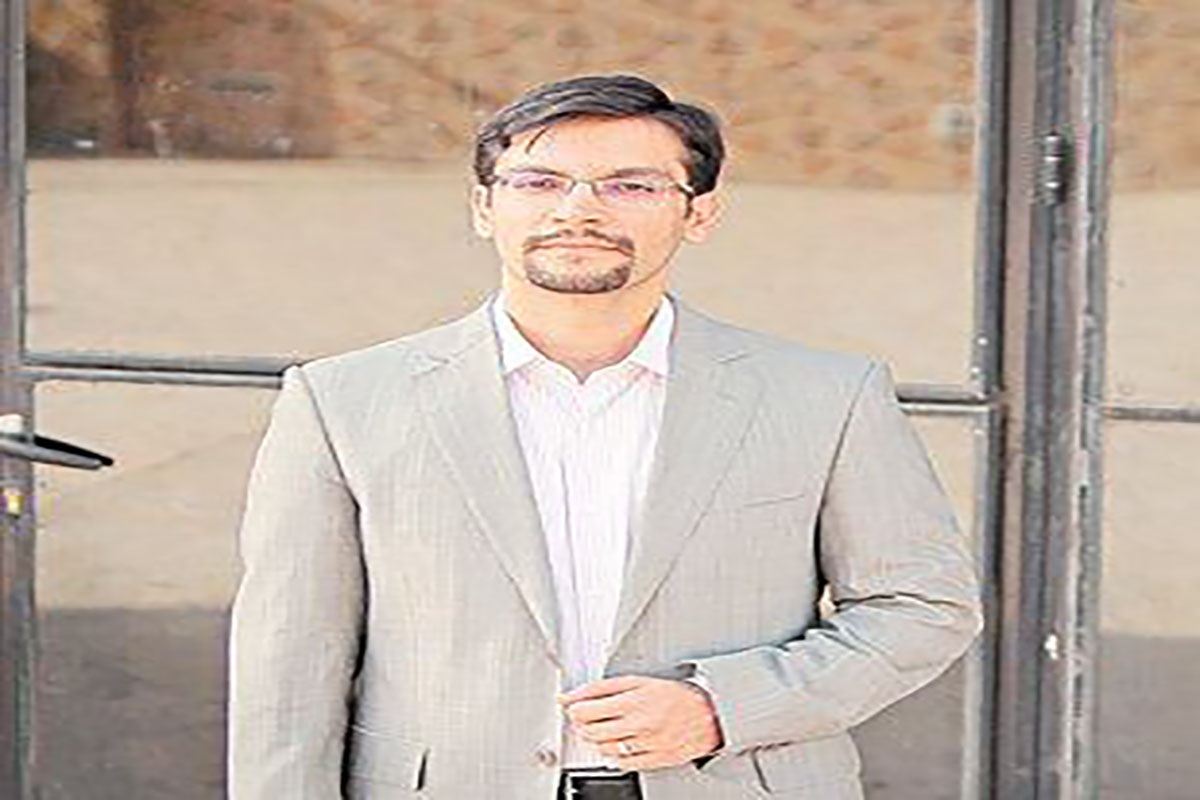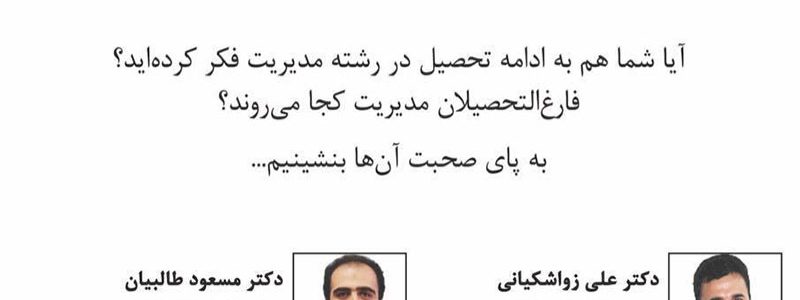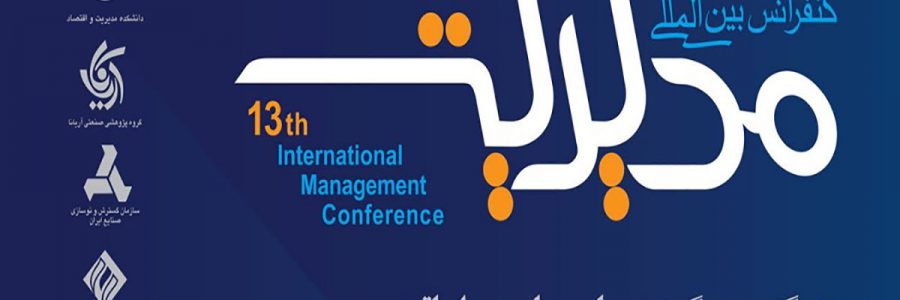عنوان کنفرانس: تجربه برتر مدیریت دارایی های فیزیکی ایران (بررسی چرخه مدیریت کار، استراتژی و نرم افزار شرکت آریاساسول)
کشور: ایران
محل برگزاری: کانون اسلامی انصار
زمان: 27 دی ماه 1394
دسته: Bridge
Structured Problem Solving and Effective Communication
عنوان کنفرانس
Structured Problem Solving and Effective Communication
کشور: ایران
محل برگزاری: دانشکده مدیریت دانشگاه تهران
زمان: سه شنبه 15 دی ماه 1394
تحصیلات تکمیلی در رشته مدیریت
عنوان کنفرانس: تحصیلات تکمیلی در رشته مدیریت
کشور: ایران
محل برگزاری: سالن جابر ابن حیان دانشگاه صنعتی شریف
زمان: دوشنبه 7 دی ماه ساعت 13 الی 14:30
دومین مدرسه زمستانی اقتصاد
عنوان کنفرانس: دومین مدرسه زمستانی اقتصاد
کشور: ایران
محل برگزاری: دانشکده علوم اداری و اقتصادی دانشگاه فردوسی مشهد
زمان: دی ماه 1394
اولین نشست آکادمی مالی ایران
عنوان کنفرانس: اولین نشست آکادمی مالی ایران
کشور: ایران
محل برگزاری: دانشکده مدیریت دانشگاه تهران
زمان: سه شنبه اول دی ماه 1394
کنفرانس مدیریت استراتژیک با تمرکز بر تفکر استراتژیک و تجارب و چالش های مدیریت استراتژیک در کشور
عنوان کنفرانس: کنفرانس مدیریت استراتژیک با تمرکز بر تفکر استراتژیک و تجارب و چالش های مدیریت استراتژیک در کشور
کشور: ایران
محل برگزاری: دانشگاه تهران
زمان: 24 و 25 آذر ماه 1394
بررسی تأثير طولانی شدن زمان انتظار مکالمه در سرویس های خدمات تلفنی- دکتر سیدمرتضی عمادی
سخنران: دکتر سیدمرتضی عمادی
سمت: دکترای مدیریت عملیات
دانشگاه/سازمان: دانشکده مدیریت کلاگ دانشگاه نورث وست
کشور: آمریکا
محل سخنرانی: دانشکده مدیریت و اقتصاد دانشگاه شری
زمان: یکشنبه 15 آذر ماه 1394 ساعت 12:30 الی 13:30
موضوع کارگاه: بررسی تأثير طولانی شدن زمان انتظار مکالمه در سرویس های خدمات تلفنی
چکیده سخنرانی:
We undertake an empirical study of the impact of delay announcements on callers’ abandonment behavior and the performance of a call center with two priority classes. Callers are assumed to be forward looking and to maximize their utilities. Their abandonment decisions are modeled as an optimal stopping problem. We estimate callers’ reward and cost parameters from data of their waiting and abandonment decisions using the method of maximum likelihood. We develop a methodological framework to find the new steady-state equilibrium of the system and to analyze the impact on the system performance when there is a change in the call center operations, e.g. a new delay announcement rule or a new service discipline is introduced. The methodological framework uses a Markovian approximation to simplify the queueing analysis, and characterizes the new steady-state equilibrium as the solution of a set of non-linear equations by combining the estimated callers’ reward and cost parameters, callers’ abandonment behavior and the queueing analysis that incorporates this behavior. In the counterfactual analysis, we characterize how various performance metrics change as the granularity of the information provided to the callers and the service discipline change.
سیزدهمین كنفرانس بين المللی مديريت
عنوان کنفرانس: سیزدهمین كنفرانس بين المللی مديريت
کشور: ایران
محل برگزاری: سالن همايش های برج ميلاد- دانشگاه صنعتی شریف
زمان: 12 الی 14 دی ماه 1394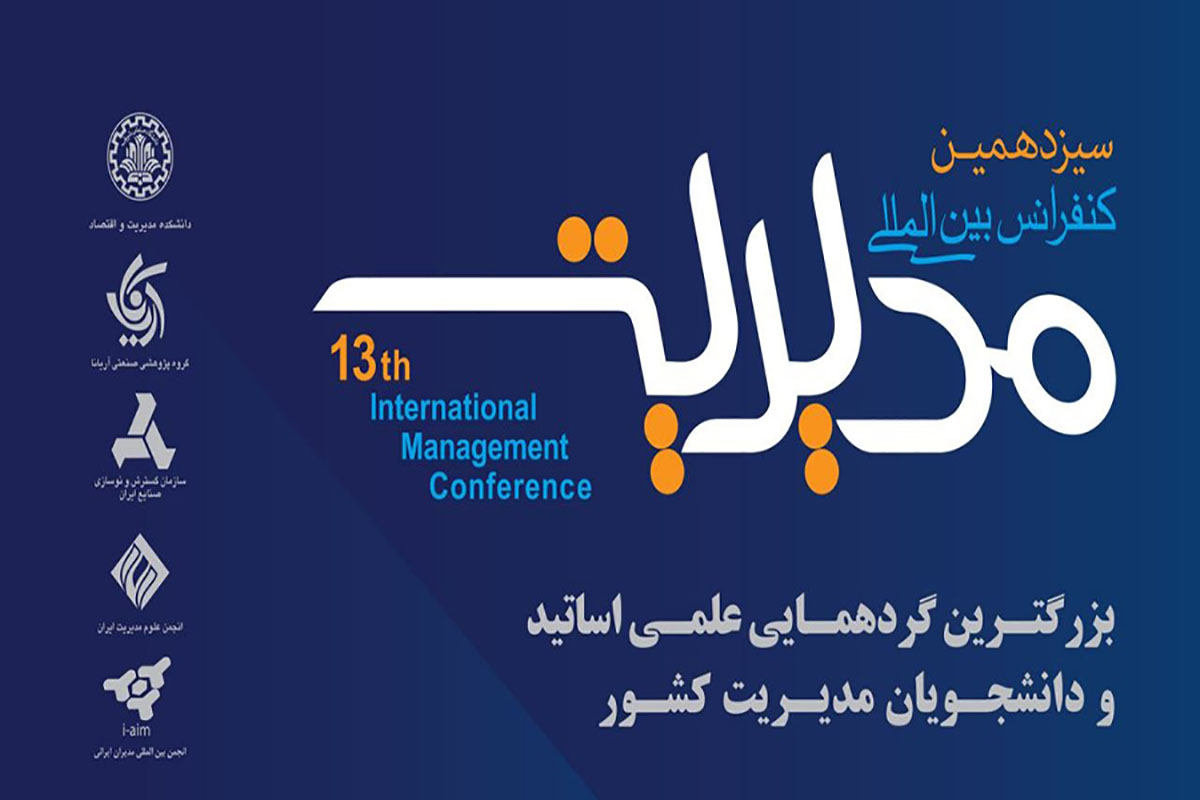
پنجمین کنفرانس بین المللی مدیریت فناوری و نهمین کنفرانس ملی مدیریت فناوری
عنوان کنفرانس: پنجمین کنفرانس بین المللی مدیریت فناوری و نهمین کنفرانس ملی مدیریت فناوری
کشور: ایران
محل برگزاری: مرکز همایش های بین المللی صدا و سیما
زمان: 25 آذر 1394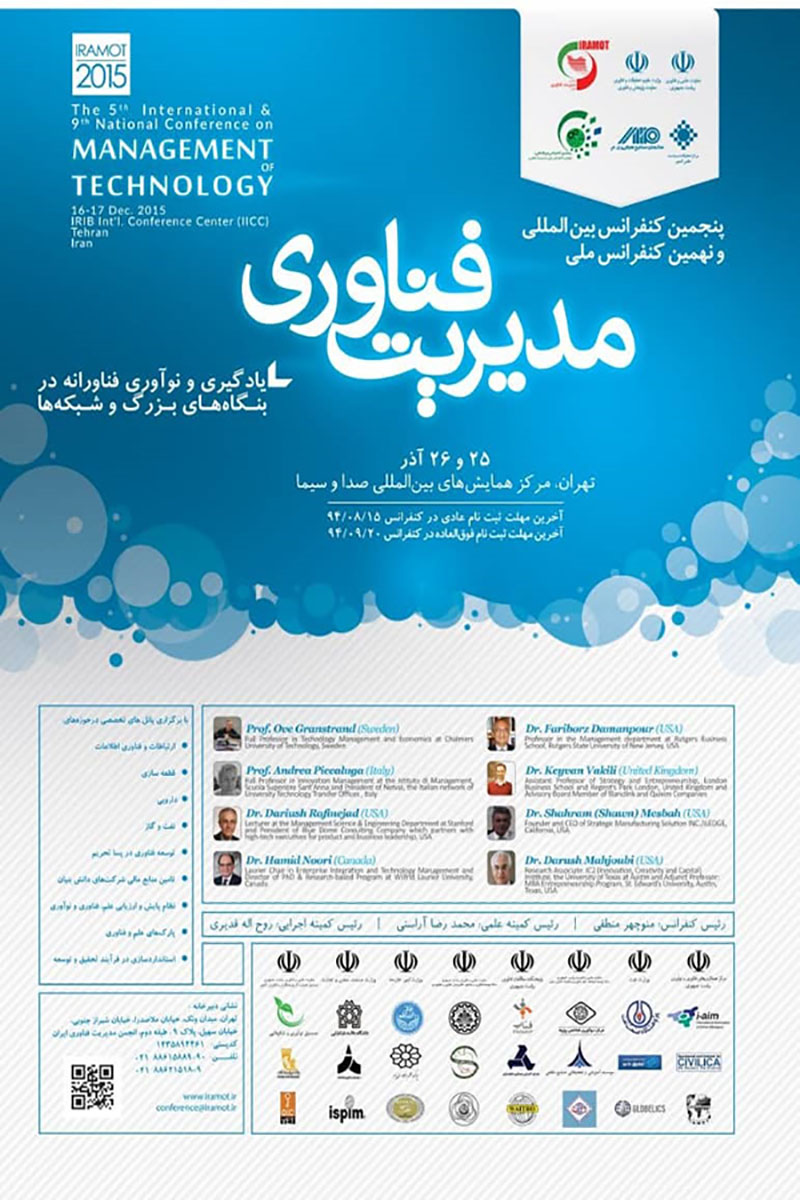
تاثير عوامل بنيادين بر نوسانات خاص شركت در بازارهای بين المللی-علی ابراهيم نژاد
سخنران: علی ابراهيم نژاد
سمت: دانشجوی سال آخر دكترای مديريت مالی
دانشگاه/سازمان: كالج بوستون
کشور: آمریکا
محل سخنرانی: دانشکده ریاضی دانشگاه علم و صنعت ایران
زمان: دوشنبه 2 آذر 1394 ساعت 13 الی 15
موضوع کارگاه: تاثير عوامل بنيادين بر نوسانات خاص شركت در بازارهای بین المللی
چکیده سخنرانی:
I investigate the relation between fundamental idiosyncratic volatility and stock returns idiosyncratic volatility using data from 56 countries over 1980‐2014. I find a strong positive relation between fundamental idiosyncratic volatility and idiosyncratic volatility of returns. This association, however, seems to be entirely driven by the developed economies and I find no effect in the emerging markets. Specifically, fundamental idiosyncratic volatility does not lead to more idiosyncratic return volatility in countries with poor legal institutions and weak shareholder protection laws.